Anne von Cleves (Anna von Kleve) was born in Schloss Burg, near Düsseldorf, on the 22nd of September 1515. Her parents were John III, Duke of Cleves and Count of Mark, known as the Peaceful (der Friedfertige), and his wife, Maria of Jülich-Berg. Anne had 3 siblings: Sibylle, William, and Amalia. In 1526, her elder sister, Sybille, married John Frederick, Elector of Saxony, who was a German Protestant prince. In 1527, Anne was betrothed to François de Lorraine, the eldest son and heir of Duke Antoine de Lorraine, but in 8 years, the betrothal contract was cancelled, making Anne an available bride on the European marriage market.
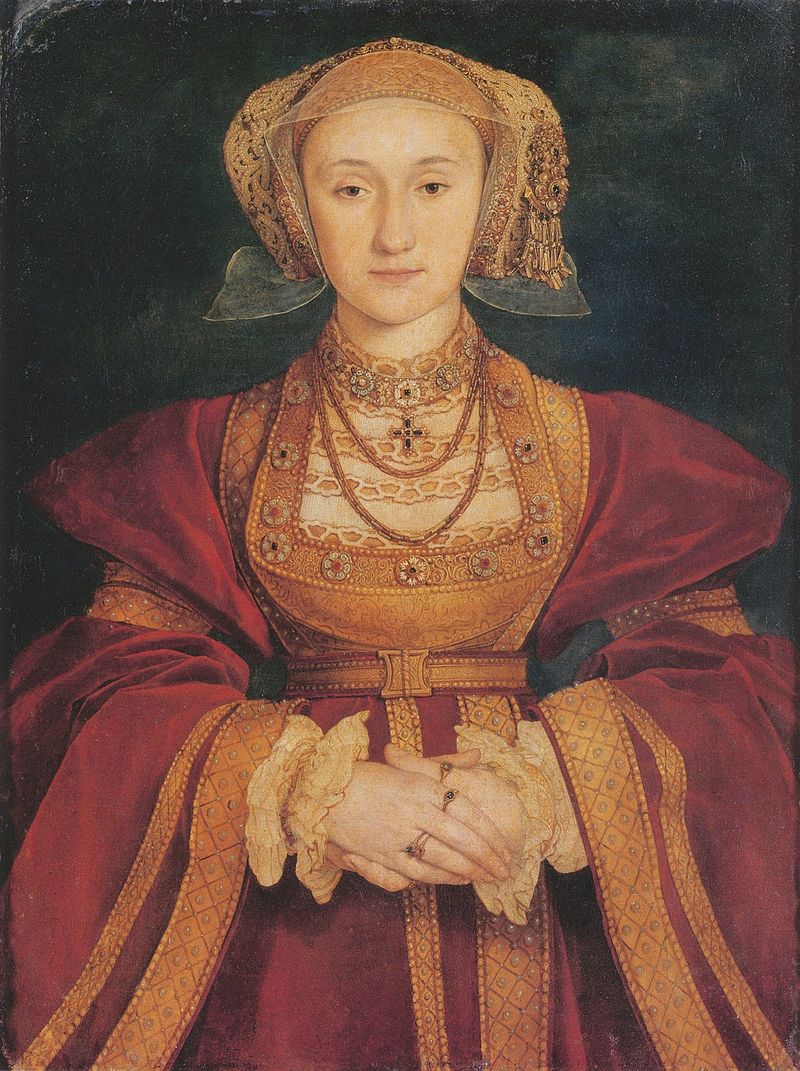
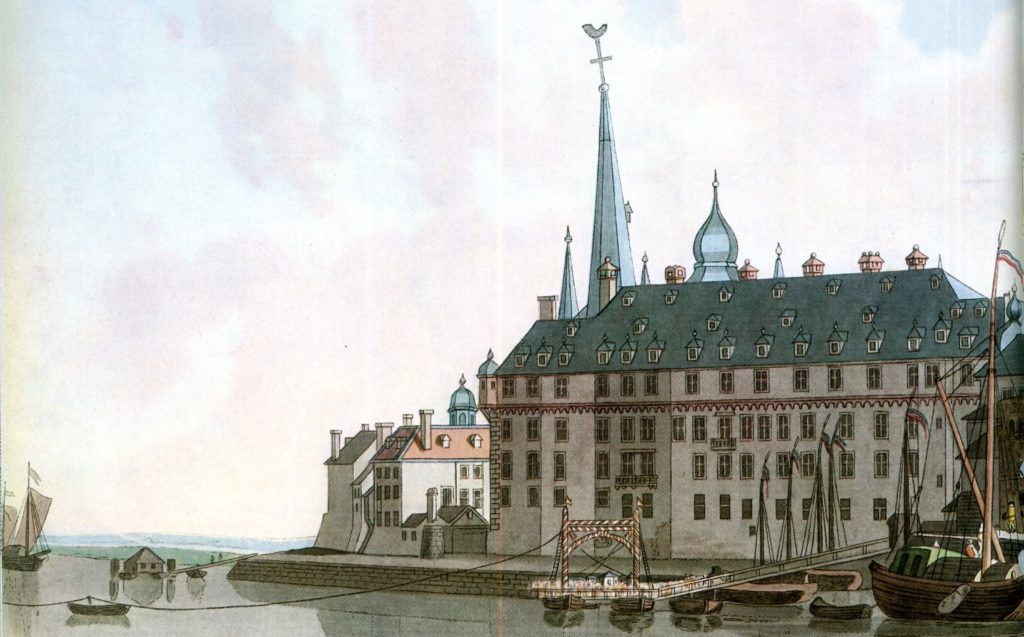
Anne’s childhood and adolescence in Cleves seem to have been peaceful and happy. Under her mother’s supervision, Anne received no formal education. She acquired skills in needlework, riding skills, and learned to run a household. Anne was able to read and write only in German, knowing little about a larger world outside her father’s duchy. She had a natural gentle, virtuous, and docile disposition, which made her a suitable wife for some prince or king. Unfortunately, Anne lacked sophistication of her personality and education, but it was not her fault at all. In 1539, Duke John passed away, and her brother, William, succeeded him as master of the lands of Cleves, Jülich, Berg, Mark, Ravensberg, Gelders, Zutphen, and Ravenstein. Soon Anne’s betrothal with the King of England was negotiated between Duke William and the English ambassadors.
When a disappointed King Henry VIII returned to Greenwich from Rochester Abbey after his first meeting with Anne von Cleves, he summoned Thomas Cromwell to his presence, wishing to see the man who proposed to form an alliance with the Duchy of Cleves through marriage. The ruler told his chief minister that he had gone to Rochester to surprise Anne, but instead he himself was unpleasantly surprised. The tale did not lighten Cromwell’s mood. An enraged Henry asked whether he could avoid this marriage. It probably was the first time when Cromwell really did not know what to answer. In the end, the minister said the truth – Henry had to marry Anne.
Several sources claim that Cromwell said:
“I know none,’ he replied, adding lamely that, “he was very sorry therefore.”
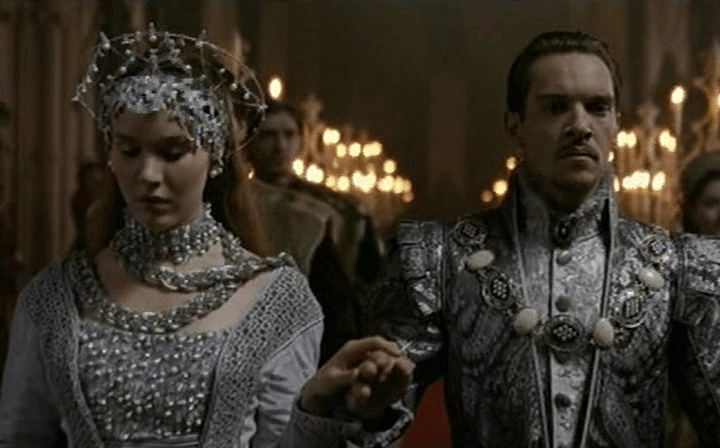
On the 3rd of January 1540, Anne and Henry met again at Blackheath. The king greeted her formally, and together they rode to Greenwich, watched by curious courtiers. The meeting did not improve Henry’s opinion of his bride, and he considered Anne an unacceptable candidate to be his next consort. It seems that the first postponement of the wedding was explained by the monarch’s attempts to find a way out of his unwanted matrimony. Henry convened the Privy Council to investigate whether he could call off the betrothal, and they focused on Anne’s first engagement to François de Lorraine. The German diplomats assured the Council that the betrothal with the Duke of Lorraine’s son had been properly dissolved in 1535 and offered to remain hostages in England until the official documentation of the betrothal cancellation was shown to the king.
Although the betrothal agreement was duly signed, Henry continued searching for ways to escape his legal obligation to marry Anne von Cleves. The next day, Anne was demanded to make a notarized declaration before the Council that she was not pre-contracted to anyone and could marry the Tudor ruler. Anne must have been shocked with the awful turns of events in England, missing the security of her native court in Cleves. England had been politically isolated after the king had broken from the Vatican, so it needed new friends and allies. Given the political situation and the lack of legal grounds to extricate Henry from his “odious” fiancée, the wedding was scheduled for 8 o’clock in the morning on the 6th of January 1540, the day of the Epiphany.
According to some sources, King Henry told Cromwell on the way to the chapel:
“If it were not to satisfy the world and my realm, I would not do that I must do this day for none earthly thing.”
What a “gallant” demonstration of “chivalrous” manners on King Henry’s part! It appears that Henry believed he was sacrificing his personal happiness on the altar of England’s security. The monarch had to wait for Anne’s arrival for some time, which worsened his already foul mood. It is interesting that Anne was late for her own wedding: perhaps it was a coincidence, but maybe she hesitated and was beleaguered by second thoughts due to all the humiliations Henry had heaped upon her since her arrival in England. Given how Henry VIII treated his wives, and that a woman indeed needed to have two heads to marry him, as Christina of Denmark correctly said when she had refused the King of England’s marriage proposal, Anne von Cleves could have been paralyzed by mortal dread on the eve of her wedding, knowing that the brutal king could barely look at her. Finally, Anne came surrounded by her ladies, and they were married in the Queen’s Closet.
Starkey writes about her appearance:
“But eventually she came, arrayed magnificently like a bride. She wore a gown of cloth of gold, embroidered with flowers of pearls. Her hair, ‘which was fair, yellow and long’, hung loose, while on her head was a coronet of gold, jeweled and fashioned with sprigs of rosemary, for remembrance. When she met Henry, whose gown of cloth of gold was also embroidered with flowers of silver, she made three low curtsies. Then they entered the Queen’s Closet, where they were married by Thomas Cranmer. Henry said ‘I will’, and the wedding ring, engraved with the words, ‘GOD SEND ME WELL TO KEEP’, was set on Anne’s finger.”
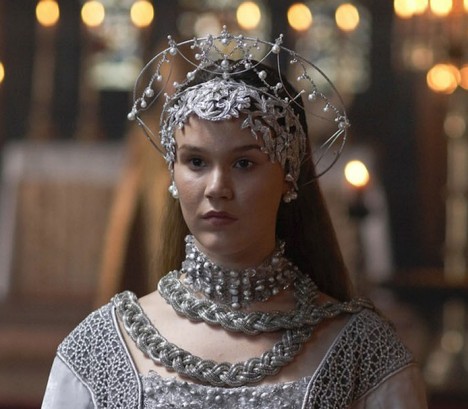
The ceremony was followed by a wedding banquet at the Palace of Placentia in Greenwich, although neither Anne nor Henry was looking forward to any festivities. The feast must have been quite awkward: Henry’s troubles with his legs prevented him from dancing, whereas Anne could not speak English well, so the spouses did not talk for the most part. However, no expense was spared on the feast. Afterwards, the spouses were ceremoniously escorted to their marriage bed. The bed-head was dated 1539 and was decorated with the royal cipher ‘HA’; it was carved with phallic symbols and scattered with rose petals. It was a perfect place to spend a pleasant wedding night, but it did not happen, as Henry confided in Cromwell the next morning.
Henry did not say bluntly about his inability to consummate the marriage, giving hints:
‘Surely, as ye know, I liked her before not tell, but now I like her much worse. For I have felt her belly and her breasts, and thereby, as I can judge, she should be no maid.’ ‘[The] which’, he continued, ‘struck me so to the heart when I felt them that I had neither will nor courage to proceed any further in other matters. I have left her as good a maid as I found her.’
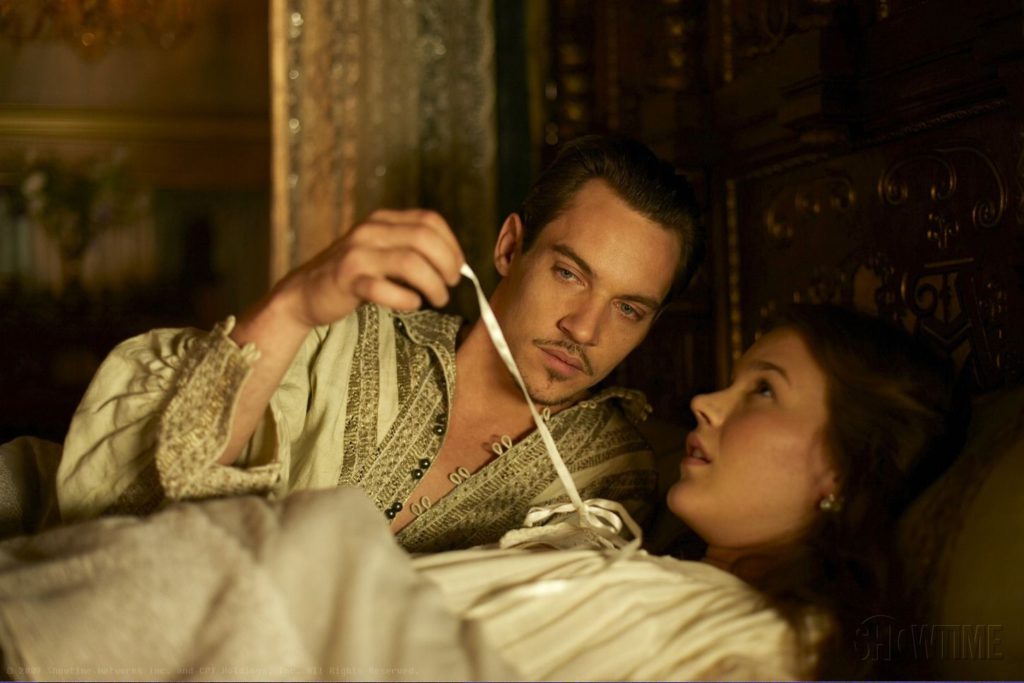
The monarch tried to have full intercourse with Anne von Cleves during the next few nights, but he failed. To justify what was only his own failure, he kept saying that Anne was so ugly and her body so badly formed that he was not attracted to her in the slightest. At the same time, it is known that Henry confessed to Doctor Butts that he had ‘two wet dreams” as he tried to sleep with her. It is easy to imagine how terribly insulted and despondent Anne was on the wedding night and in the following days. She was surrounded by smirking English aristocrats who treated her as a queen, but who probably snickered at her behind her back, for the nobles all walked on eggshells around their narcissistic, egotistical, and volatile sovereign. Anne did not speak the language well, but she could understand some nasty words, being depressed and fearing for her fate.
It must also have been unpleasant for young Anne to be with Henry who was past his prime. The ailing king, whose waist was gradually thickening due to the lack of physical exercise and due to his gluttony, had ulcerated legs. The putrid smell must have disgusted Anne when Henry touched her. In the privacy of their bedchamber, he undressed and positioned himself on top of “his victim”. Henry tried to take her virtue without success, and then rolled off of her, probably muttering curses. These are my thoughts, but I believe that something like this happened between these unfortunate couple. However, in public, her husband displayed chilly, fake courtesy towards his new queen – the second unfortunate Queen Anne who suffered at his hands.
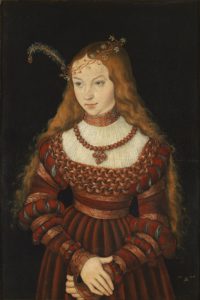
Most likely, King Henry was no longer virile and incapable of having sexual relations with women due to his health issues. He described Anne as ugly because it suited his purposes. Henry could not portray himself in a bad light: he always needed scapegoats to whitewash his “glorious” personality and to satisfy his inflated ego. Anne could become a dignified and intelligent queen, but she was not given a chance to do so because of the king’s desire to set her aside. Despite not having been taught to live at courts such as English and French courts, Anne could have gotten accustomed to English customs over time, and she could improve her English. History proved that she was a quick learner: she already spoke English quite well with her ladies for a few months after her marriage, and she also learnt to play card games, which were fashionable in England and which probably lessened Henry’s dislike of her. Anne was on good terms with Elizabeth, although her relationship with Mary Tudor seems to have been strained due to their religious differences.
King Henry ignored the fact that Anne von Cleves came from quite a fertile family. Her parents had 4 living children. Her mother could not boast having very fertility ancestresses, but her father could: Anne’s grandfather – Duke John II of Cleves – had 3 legitimate children and was called ‘The Babymaker’, or ‘der Kindermacher’, because he had fathered 63 illegitimate children before his marriage to Mathilde of Hesse in 1490. Therefore, Anne von Cleves must have been fertile and could give Henry a second son if only the king had performed his conjugal duties regularly. Henry’s reign was dominated by his obsession to have a male heir, and he had a real chance to sire another child, perhaps a son, on Anne, but his health issues prevented him from accomplishing it. The monarch was not able to bed Anne, which was not her fault, and he could not forgive her for it, so he cast her aside. In spite of coveting to have a Duke of York, Henry would later annul his marriage to Anne and would call her “his sister” for the rest of his life.
All images are in the public domain.
Text © 2020 Olivia Longueville

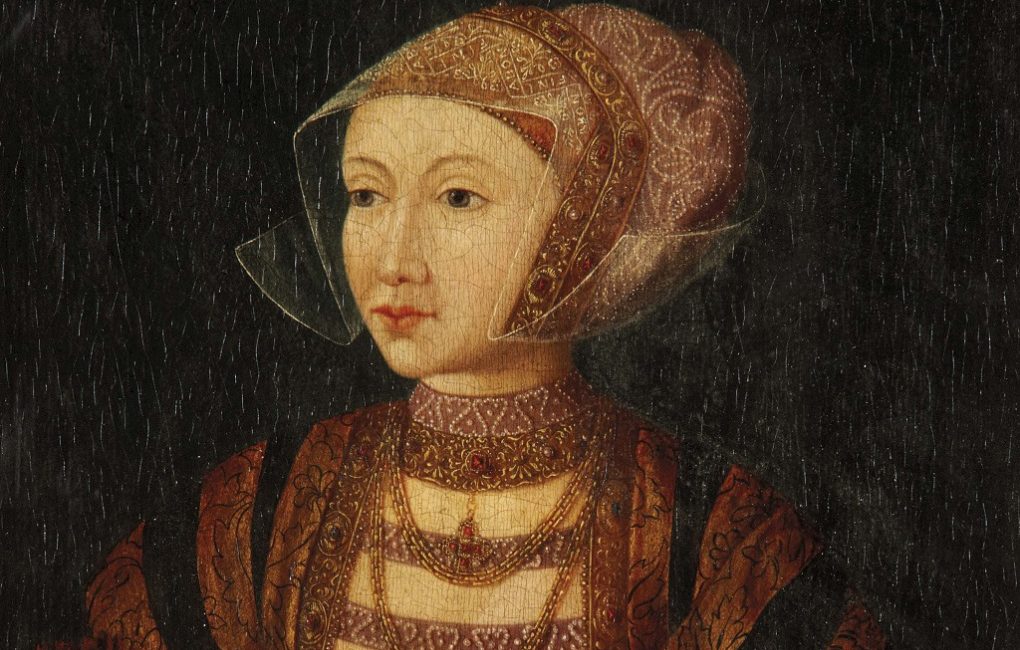



Wonderful text yes I do also belive Caherine Howard was a sweet innocent and maby a bit naive Young girl that fell in love wish a Young man (Culpepper) and never really realised that her fate could be to be beheaded. Maby she had heard so mutch of the gossip around Anne B that Catherine thought there was something extra bad With Anne and therefore she was beheaded. And that this fate wouldnt happend to herself (Caherine).
Thank you for your comment! I am so glad you like the article. I love the Renaissance and Tudor eras! Catherine Howard was young and innocent, as well as immature. Anne von Cleves was discarded, but I assume she herself wanted it to happen and was clever enough to agree to an annulment. She became a content, free, and wealthy woman who outlived Henry VIII. Anne and Catherine were both Henry’s victims, but Anne was more fortunate.
I think the fact that Henry expressed disappointment with his bride to be on several occasions before the wedding and in fact tried to extricate himself from the contract explain.his inability to consummate the marriage rather than health issues. The words he used ‘that which I must do’ speak of a man absolutely dreading what awaited him. Are there no further objective contemporary accounts which would confirm or explain Henry’s aversion to Anne?.
Thank you for your comment! I am so glad you like the article. I love history of England too, although I also love history of France and Italy. I love the Renaissance and Tudor eras! Anne von Cleves was discarded, but I assume she herself wanted it to happen and was clever enough to agree to an annulment. She became a content, free, and wealthy woman who outlived Henry VIII. Very few accounts can confirm his aversion to Anne, and what we have were invented by Tudor propaganda.
I LOVED this article…so we’ll written and very information.
Although poor Anne was “discarded” by Henry, at least she managed to survive the marriage, and went on to outlive him.
Thank you for your comment! I am so glad you like the article. I love history of England too, although I also love history of France and Italy. I love the Renaissance and Tudor eras! Anne von Cleves was discarded, but I assume she herself wanted it to happen and was clever enough to agree to an annulment. She became a content, free, and wealthy woman who outlived Henry VIII.
I love reading about the history of the women in Henry the Vlll’s vile cruelty. I like the history of England.
Thank you very much for your comment! I am so glad you like the article. I love history of England too, although I also love history of France and Italy.
Henry was such a self absorbed narcissist. Poor Anne taken to a new country she knew little to nothing about. The English Court was so ruthless for a poor young girl to be thrown into as well as getting an unloving husband. She actually luck out having Henry annul the marriage but what hurt to her ego.
Thank you very much! Glad that you like it. Thank you for your kind words! Anne von Cleves is one of my favorite Henry VIII’s wives.